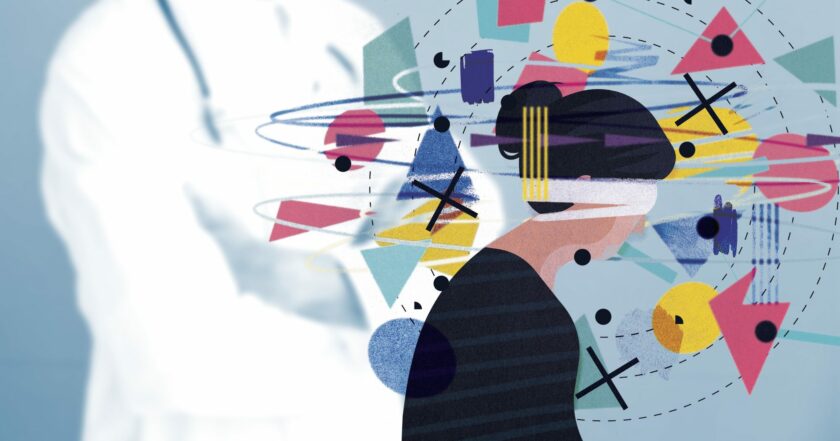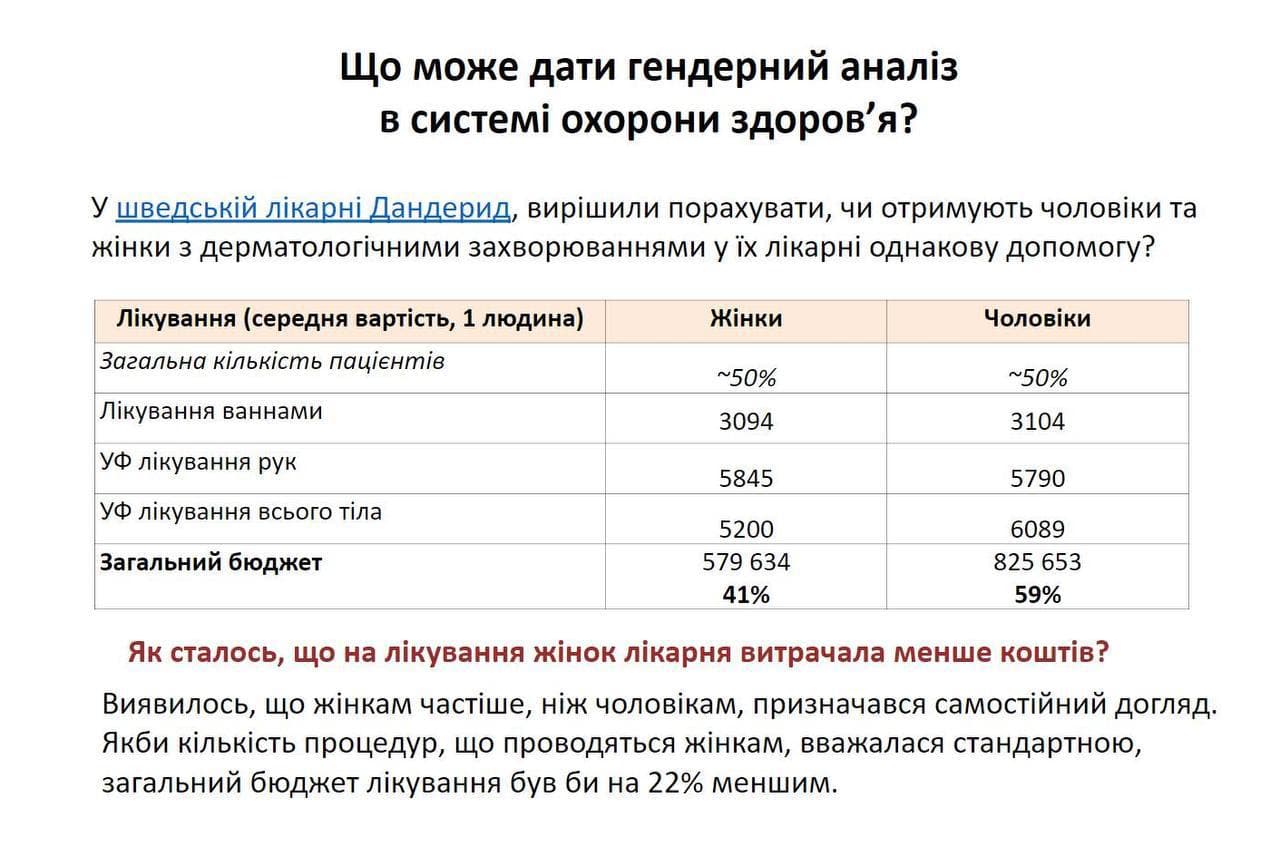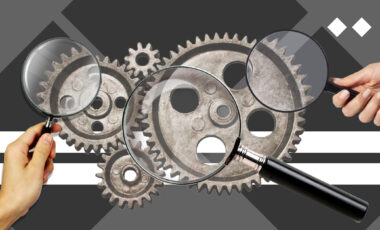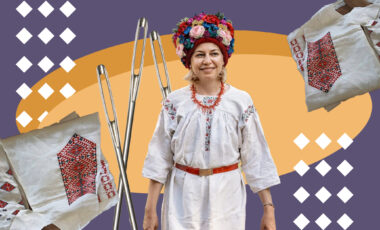"You're making things up!" or why women aren't often treated: how inequality manifests itself in medical field
Higher pain threshold, "she's just lazy," "she still needs to give birth, then it'll actually hurt" and other myths about women that can be life-threatening. It turns out that feminism can literally save lives. We explain how and why it happens

Health Magazine Illustration
There's no domain in life that doesn't address gender issues or women's rights. They often say that men receive higher salaries, have a better chance of making a career, or being appointed to a more influential position. Among women, there are more victims of domestic and other forms of violence; they have a minority in power at any level, more often become hostages of stubborn stigmas and stereotypes.
Gender prejudices exist everywhere, and the medical field differs little from everyday situations or the professional area. We know well that belonging to a certain social group or level of affluence can affect the quality of healthcare. But there's another, less obvious factor that affects a fairly large number of people — the gender of the person seeking medical help.
Women are less likely to see a serious attitude towards their fears, pain, or other symptoms. The female body has been less studied in clinical trials, making it difficult to find effective treatments. The model in the majority of cases for prevention, diagnosis, and treatment is still a man.
Too emotional and worried
In 2000, The New England Journal of Medicine published a study that discovered that women were seven times more likely to be misdiagnosed in a heart attack than men. Again, the reason is that the medical concepts of most diseases are based on an understanding of male physiology, and women have different heart attack symptoms than men.
A 2015 study found that when examined, six out of eleven cancer types, women were diagnosed much later than men. And the problem isn't that women don't seek a doctor's help in time; the medical professionals are in no hurry with a proper diagnosis. Often women who see a doctor hear that their symptoms are caused by anxiety, depression, or "stress" — a universal cause for all occasions. Suffering from pain, women are much more likely to receive prescriptions for sedatives rather than therapeutic drugs than men because it's believed that most women listen to their bodies too much and all the symptoms are mostly neurotic.
Prejudice against women in health care results in many diseases being diagnosed later than in men, and they're more likely to hear that the problem they're complaining about largely originates in their exalted imagination.
They also add ageism to gender discrimination. "What did you want at your age?" Elderly women can equally hear this expression sitting on a bench in the yard during a friendly conversation with retired girlfriends, and when they visit a doctor at the district clinic.
We know that cardiovascular diseases, including strokes, are the leading cause of death in women in most developed countries, including Ukraine. Last but not least, ill-timed or incorrect diagnoses work to replenish these sad statistics. Oksana L. from Cherkasy faced a case of such an incorrect diagnosis.
"My mom doesn't have Alzheimer's"
"Last week, three years after they discharged my mother into hopeless senile dementia, an experienced doctor accidentally determined that my mother… didn't have Alzheimer's," the woman said. "It turned out that during the last 10-15 years, my mother had had numerous micro-strokes. They weren't recognized, noticed, or diagnosed, and they could've and should've been treated. Unlike senile dementia.
They didn't recognize them because:
- she's a woman, and androcentric medicine sees signs of only "typical" (male) micro-stroke; in the directories, they write that "micro-stroke in women occurs atypically," i.e. not like in typical people — men;
- b) she's thin;
- c) she's always had low blood pressure;
- d) she's always led a healthy lifestyle, up to self-torture;
- e) she had undiagnosed depression: one of the factors;
- f) she was after menopause, and all women's complaints are attributed to it;
- g, h, i – z) Alzheimer's! What else can a woman after 70 have?
Her strokes took the form of poisoning or migraines. Falling on a flat surface (second faintings) was considered inattentiveness. Diction disorders were her fatigue.
Symptoms of micro-strokes in women disappear within an hour and within a day or more in men. A woman is usually a patient creature. A woman suffers from the same "unbearable headache" a man has and doesn't tell anyone. Each of these micro-strokes gradually took away my mother's mind. My clever programmer mom can't add two-digit numbers now, and two weeks ago, she forgot how to put on a diaper; without it, she can no longer live. She lives in her world of hallucinations, strangers, and can't find her own people.
Nothing can be fixed now. In fact, it was possible to fix and prevent new micro-strokes. Quite simply, even on an outpatient basis. Only 10 years ago. And now everything is visible on the MRI, and no one has seen it before, because… they were searching for something else."
The most difficult factor is that the symptoms of women's diseases are really different. But they don't train doctors about them. Posters about male stroke symptoms hang on the walls of every clinic, and doctors know about female stroke from their own long experience, mainly formed on such, often fatal, mistakes. The term "gender medicine" creates an imprint on the minds of doctors. Introducing gender medicine is necessary because, besides the differences between the reproductive systems of the male and female body, there are sex characteristics of the origin, development, and prevention and treatment of "universal" diseases. Having the same organs, a woman and a man have a whole range of diseases differently, so it's extremely important to consider gender: diabetes, diseases of the joints and bones, endocrine and psychiatric diseases. Moreover, a joint study by three universities in the United States, Sweden, and Germany discovered that the focus should be not only on biological differences (different hormone concentrations, body fat percentage) but also on socio-cultural aspects: behavior, stress, lifestyle, gender prejudices, etc.
Being heard
75% of complaints of 50+ women remain unheard and unrecorded.
Younger women are also at the receiving end. There can be many reasons: a teenage girl complains too much because "everything in her is still growing and forming"; a pregnant woman may feel unwell "because of hormonal changes"; a woman in labor may get symptoms because of "postpartum depression"; a working mother of schoolchildren — because of "chronic fatigue." It comes to the point that sometimes in order to be heard, women are forced to come to the doctor's office accompanied by a partner, or send a husband to the doctor with a child: "A man goes to specialized doctors with a child because mothers would hear "you're making things up!" (Olena K.)
It's hard to believe, but even the fact that women often look more beautiful than men leads to the fact that they receive less attention from the medical staff. In the study "Beautiful faces in pain," Thomas Hadjistavropoulos found that because of the "pretty = healthy" stereotype, doctors can subconsciously assume that people who look better are healthier and therefore require less treatment.
Another example is economizing on women at the hospital level. One of the probable reasons: she'll pull herself through, buy something at the pharmacy (instead of procedures in the clinic).
We often hear stories of women nursing their sick relatives back to health with all their might and at their own expense. In a way, the image of a devoted nurse for all household members is firmly entrenched in the mass consciousness as a feature inherent in a woman by default. When it comes to the woman's illness, usually, if you're lucky, other women, relatives, or friends will become caregivers and helpers for her. Men often withdraw or partially absolve themselves of responsibility for the health of their wives or even mothers, because the stereotype of typical masculinity dictates neither self-sacrifice in the family's name nor the requirement to serve others when they're in need.
Men or relatives of women justify their ignorance by saying: "women have a higher pain threshold by nature, she can endure"; "she still has to give birth, then it'll actually hurt"; "women always manipulate"; "why should she go to the doctor, especially with such expensive tests?"; "who knew it was a stroke, we figured she was too lazy to get out of bed," etc.
It may also indicate how society feels uncomfortable with "emotional" women and tries to justify their loud or chaotic behavior with stereotypes before actually paying attention to the original causes of their suffering.
Feminism and medical gaslighting
Sometimes the thing that should protect them gives a disservice to women. For example, the American Heart Association and the National Institutes of Health discovered that only 39% of women who had a cardiac arrest in a public place received cardiopulmonary resuscitation, compared with 45% of men. Accordingly, men were 23% more likely to survive. Researchers believe that one of the reasons may be the fear of unplanned rescuers to remove some women's clothing to gain better access for artificial resuscitation, touch a woman's breast, and cause some moral or physical harm.
But despite such side effects of the feminist movement, no one articulates the problem of protecting women from medical prejudice more than feminists.
"The feminist movement in Ukraine has repeatedly drawn attention to prejudice against women in health care," Olena Zaitseva, an expert on gender impact assessment, a lawyer at the "Center for Democracy Development" public organization, commented on the situation. "In particular, all November in Resistanta, one of the feminist groups on Facebook, was dedicated to this topic. The issues of frivolous treatment of women's complaints, the insufficient study of diseases and conditions unique to women, misdiagnosis, abortion ban, and surrogacy were discussed: the consequences of a specific attitude towards women and the female body. But even before that, in such feminist groups as FeminismUA and Sexism and Misogyny, they've raised these topics dozens, if not hundreds of times. There are also several projects involving feminists aimed at protecting women's rights from medical violence, including the Pryrodni Prava Ukraine project.
There's even a term "medical gaslighting" when doctors underestimate or explain the symptoms for non-medical or emotional reasons, which makes people doubt themselves or think that they're exaggerating. Medical gaslighting is more common for women than for men. There are many examples. In Europe, when a similar problem with the diagnosis came to the surface (again, thanks to the attention of women's rights movements), it came to changing approaches to training and modifying protocols, so that the symptoms of women different from men were finally also taken into account and not considered "atypical." How can the symptoms of half of humanity be atypical?"
How to stop it?
According to the expert, the situation in Ukraine won't be fixed quickly: we still don't incline to admit that there's prejudice against women and write off everything on the case, character, i.e. individual things, not systemic ones. And if the problem isn't seen or is even denied, it's impossible to solve it. Therefore, the first step should be problem recognition, especially in the medical environment. Then, collecting information about the situation, analyzing in which cases in Ukraine, there's often discrimination against women in the medical field, what mistakes doctors make because of prejudice. Naturally, you can use international experience, research from other countries, because we're talking more about physiology and medical protocols, and not just about traditions and local characteristics. Next, when certain data are collected, it's necessary to unite physicians, managers, relevant government agencies, and the expert community and decide together what changes we need.
"It is essential to learn to find common ground at the doctor's appointment, but I wouldn't advise putting the primary responsibility on the patients: she hasn't explained, hasn't eloquently described the pain," says Olena Zaitseva. "But the environment can play an important role; believing a woman if she says she's in pain, suggesting that one may need to pay attention to the difference in symptoms between women and men, taking her complaints about her health seriously. I'd advise women to trust themselves more, value themselves, and (if possible) not to keep silent about cases of violations and mistakes by doctors. Personally, I consider official complaints to be the most effective."
Anastasia Kirichenko, a co-founder of the "Zhyva-Ya" public organization, an organization helping women who find themselves in difficult circumstances, faced any form of violence: "Unfortunately, during the quarantine, there's an increase in abuse by both relatives and doctors. If the doctor refuses to provide services because you "ask a lot," "demand attention," it violates your rights and means the abuse of power at the workplace. If you need a doctor's help, and your relatives tell you you "invented" symptoms and say, "why spend money on it," it means economic violence. Learn to recognize these types of violence and respond in a timely manner. To do it, first, you must not remain silent. Say STOP to an offensive attitude towards ourselves."
A 2020 article by Alison Brysk & Miguel Fuentes Carreño argues that feminism is "good for health" because it challenges restrictive gender norms, improves women's access to health care, reproductive rights, and protection from violence, which has a positive effect on life expectancy and well-being of all those around her. A society that strives for women's equality is beneficial for everyone's health and well-being; in fact, feminism can save your life, even if you're not a woman.
Therefore, the rights of women in the medical field should be discussed not only with its representatives and all levels and branches of government but also with men, children, various minorities, and social groups. For example, in Canada, they involve as many votes in governance as there are different communities. Otherwise, it won't work.

Scientific scandal. Sociologist with misogynistic statements defended his doctorate

Відсьогодні хочу бути красивою. Як себе перепрошити — відповідає психолог
Rubryka also collected 7 of its articles on combating violence against women.



























































